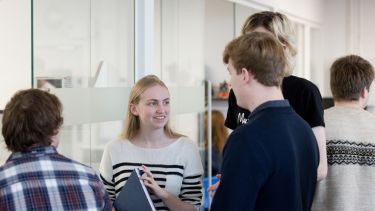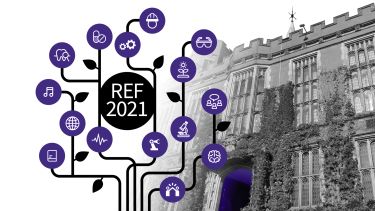Undergraduate courses
We offer a range of physics degrees. They include opportunities to study abroad, complete a year-long work placement or specialise in astrophysics, particle physics, theoretical physics or medical physics.

BSc or MPhys?
MPhys courses come with a final year of research training, where you'll work in the lab with a team of professional scientists on an unanswered question in physics. They're the best route for students who are thinking about a career in scientific research.
Accreditation
These courses are all accredited by the Institute of Physics, so you’ll cover the key topics that every physicist needs to understand: mechanics, waves, optics, relativity, electromagnetism, thermodynamics, quantum physics and more.
Flexibility
But there’s always flexibility to choose from a wide range of optional modules too, so you can tailor your degree to your interests, your career goals and the global challenges you want to help solve.
Physics courses
2024-25 entry
Physics and Astrophysics courses
2024-25 entry
- Physics and Astrophysics BSc FF35
- Physics and Astrophysics MPhys F3F5
- Physics and Astrophysics with an Industrial Placement Year BSc FF36
- Physics and Astrophysics with an Industrial Placement Year MPhys F3F6
Physics with Particle Physics courses
2024-25 entry
Theoretical Physics courses
2024-25 entry
- Theoretical Physics BSc F344
- Theoretical Physics MPhys F321
- Theoretical Physics with an Industrial Placement Year BSc F345
- Theoretical Physics with an Industrial Placement Year MPhys F322
Physics with Medical Physics courses
2024-25 entry
Physics with Philosophy courses
2024-25 courses
Study Abroad
If you're starting your degree in 2023, you can apply to spend a year studying abroad once you've started.
Physics with a Foundation Year
Physics with a Foundation Year F309 - 2024 entry

Research Excellence Framework 2021
We have been rated 1st in the UK in terms of the quality of our research. In the latest REF, 100 per cent of research and impact from our department has been classed as world-leading or internationally excellent.
